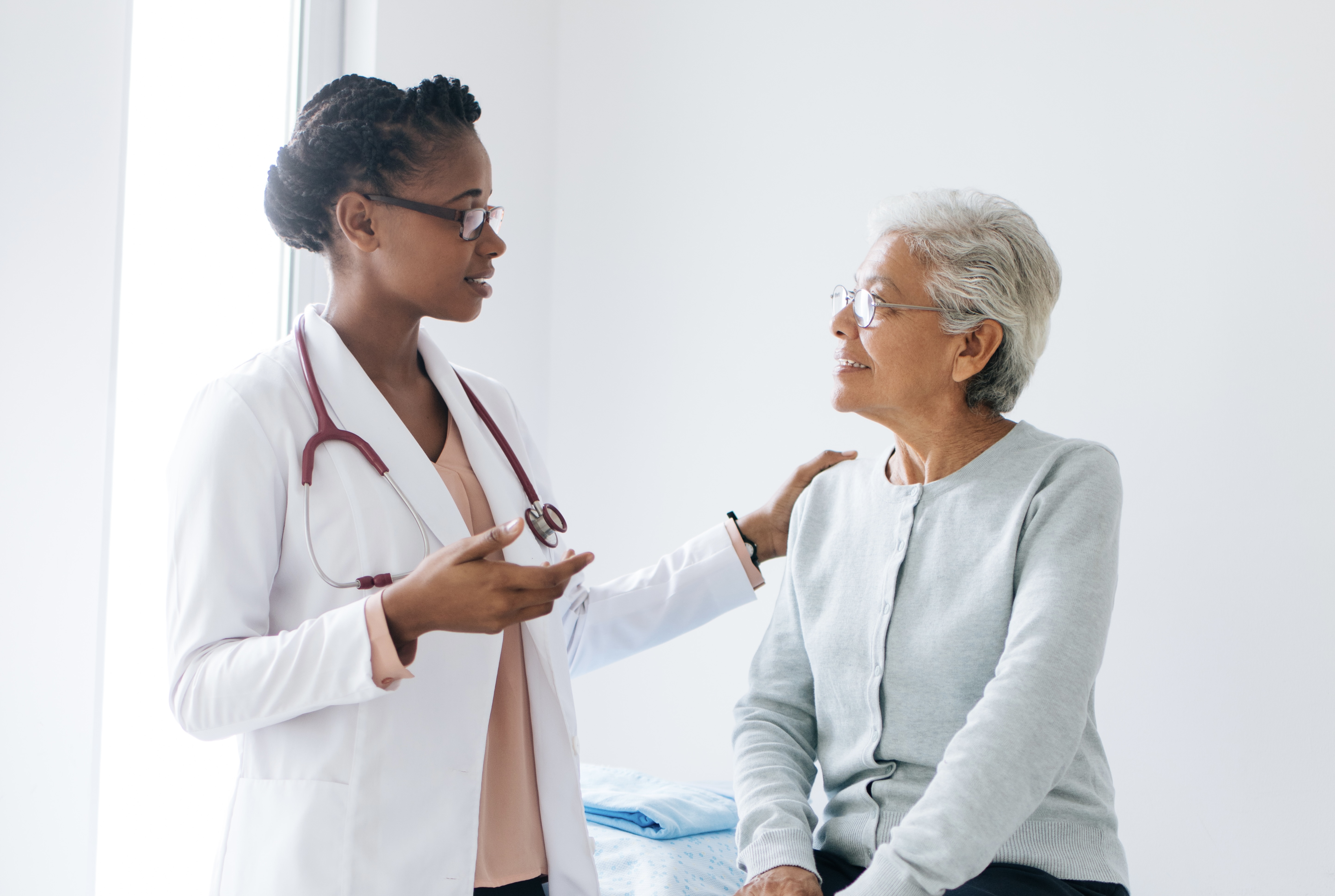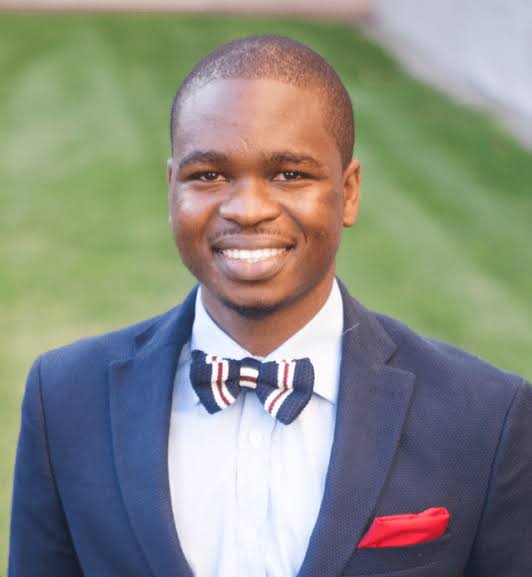
Culturally Responsive Communication, Part II: Sharing Power with Patients
 Overview
Overview
This module is entitled Culturally Responsive Communication, Part II: Sharing Power with Patients.
Clinicians often operate under the assumption that they are “all-knowing” due to their extensive training and years of experience in clinical decision-making. However, this “all-knowing” assumption compounded with implicit bias leads to an unequal power dynamic between clinicians and patients. The lived experiences of patients as well as an understanding of their health needs must be understood as an asset to the decision-making process. This module aims to describe culturally responsive communication as a strategy to uproot implicit biases and share power with patients in clinical settings.
You will hear from the Director of Research at Us Helping Us, Dr. Adedotun Ogunbajo.
Commercial Support
This accredited CE activity was supported by an independent medical education grant from Gilead Sciences, Inc.
Target Audience
This training targets Primary Care Practitioners (PCPs) in training or in practice who work in family practice or internal medicine as registered nurses (RN), nurse practitioners (NP), physician assistants (PA), medical doctors (MD), osteopathic medicine doctors (DO) or in the field of dentistry. This includes the pipeline of health professions students in clinical rotations.
Learning Objectives
Upon conclusion of this program, participants should be able to:
- Describe culturally responsive communication;
- Identify the necessary values to facilitate culturally responsive communication;
- Practice what sharing power in the clinician-patient interaction looks like.
Adedotun Ogunbajo, PhD, MPH
 Adedotun Ogunbajo is the Director of Research at Us Helping Us with a PhDcial health sciences from Brown University, and a MPH and behavioral sciences from Yale University. His research interests are around the intersection of structural barriers and sexual health outcomes among racial and sexual minority communities both in the United States and various Sub-Saharan African countries.experienced public health researcher with a focus on structural barriers and sexual health outcomes for minoritized populations both nationally and globally. He holds a PhD in behavioral and social health sciences from Brown University, and a MPH in social and behavioral sciences from Yale University. His dissertation explored how psychosocial health outcomes and substance use influences sexual risk taking among gay and bisexual men in Nigeria. As a Yerby Fellow at Harvard University, he is continuing to broadly focus on the intersection of structural barriers and sexual health outcomes among racial and sexual minority communities both in the United States and various Sub-Saharan African countries.
Adedotun Ogunbajo is the Director of Research at Us Helping Us with a PhDcial health sciences from Brown University, and a MPH and behavioral sciences from Yale University. His research interests are around the intersection of structural barriers and sexual health outcomes among racial and sexual minority communities both in the United States and various Sub-Saharan African countries.experienced public health researcher with a focus on structural barriers and sexual health outcomes for minoritized populations both nationally and globally. He holds a PhD in behavioral and social health sciences from Brown University, and a MPH in social and behavioral sciences from Yale University. His dissertation explored how psychosocial health outcomes and substance use influences sexual risk taking among gay and bisexual men in Nigeria. As a Yerby Fellow at Harvard University, he is continuing to broadly focus on the intersection of structural barriers and sexual health outcomes among racial and sexual minority communities both in the United States and various Sub-Saharan African countries.
Maranda C. Ward, Ed.D, MPH
 Maranda C. Ward, Ed.D, MPH, is an assistant professor and director of equity in the Department of Clinical Research and Leadership in the GW School of Medicine and Health Sciences. Dr. Ward is an expert in advancing anti-racism efforts within health professions education and in designing curricula to enable students and faculty to competently promote health and racial equity in practice. Her research focuses on diversity, equity, inclusion, justice and antiracism educational interventions as well as stakeholder-engaged community-focused studies on HIV, Black women's health, and youth identity. As a member of the DC Center for AIDS Research (DC CFAR), she is the principal investigator on Two in One: HIV and COVID Screening & Testing Model that allows her to lead a national research-based educational intervention for primary care practitioners to routinize screenings for HIV, PrEP/PEP, and the COVID vaccine. This research will lead to a set of policy recommendations for overall practice-based changes for all patients and culturally responsive messaging for racial, ethnic, sexual and gender minoritized patients. She is also skilled in the application of participatory action research methods.
Maranda C. Ward, Ed.D, MPH, is an assistant professor and director of equity in the Department of Clinical Research and Leadership in the GW School of Medicine and Health Sciences. Dr. Ward is an expert in advancing anti-racism efforts within health professions education and in designing curricula to enable students and faculty to competently promote health and racial equity in practice. Her research focuses on diversity, equity, inclusion, justice and antiracism educational interventions as well as stakeholder-engaged community-focused studies on HIV, Black women's health, and youth identity. As a member of the DC Center for AIDS Research (DC CFAR), she is the principal investigator on Two in One: HIV and COVID Screening & Testing Model that allows her to lead a national research-based educational intervention for primary care practitioners to routinize screenings for HIV, PrEP/PEP, and the COVID vaccine. This research will lead to a set of policy recommendations for overall practice-based changes for all patients and culturally responsive messaging for racial, ethnic, sexual and gender minoritized patients. She is also skilled in the application of participatory action research methods.
We would like to acknowledge the significant contributions of Nikhil Kalita, BS and Sadhana Matheswaran for their roles in researching, compiling, and editing content for this 9-part course series.
Physicians
The George Washington University School of Medicine and Health Sciences designates this enduring material for a maximum of 1.00 AMA PRA Category 1 Credit(s)™. Physicians should claim only the credit commensurate with the extent of their participation in the activity.
ABIM MAINTENANCE OF CERTIFICATION (MOC)
Successful completion of this CME activity enables the participant to earn up to 1.00 MOC points in the American Board of Internal Medicine’s (ABIM) Maintenance of Certification (MOC) program.
PHARMACISTS & Pharmacy Technicians
The George Washington University School of Medicine and Health Sciences is accredited by the Accreditation Council for Pharmacy Education (ACPE) as a provider of continuing pharmacy education.
ACPE#: 0536-0000-22-013-H99-P
ACPE#: 0536-0000-22-013-H99-T
Release Date: January 11, 2023
Expiration Date: January 11, 2026
CE Credits: 1.00 (0.1 CEUs)
Other Healthcare Professionals
A certificate of participation will be provided to all other healthcare professionals.
Many credentialing bodies such as the ANCC, AANP, and AAPA) accept certificates of participation for educational activities certified for AMA PRA Category 1 Credit™ from organizations accredited by the ACCME. If you have doubts whether an activity will qualify for CE, please contact your certifying organization for clarification on credit eligibility.
Available Credit
- 1.00 ACPE PharmacistThe George Washington University School of Medicine and Health Sciences is accredited by the Accreditation Council for Pharmacy Education as a provider of continuing pharmacy education.
- 1.00 AMA PRA Category 1 Credit™The George Washington University School of Medicine and Health Sciences is accredited by the Accreditation Council for Continuing Medical Education (ACCME) to provide continuing medical education for physicians.
- 1.00 Completion
Instructions for Enrolling in the Course
Please note that you must be logged in to enroll in the course.
New Users
You must create a learner account prior to registering for this course.
Click here to create a learner account
Click here to access additional instructions for creating a learner account
Returning Users
Click here to login and proceed with enrolling the course

 Facebook
Facebook X
X LinkedIn
LinkedIn Forward
Forward